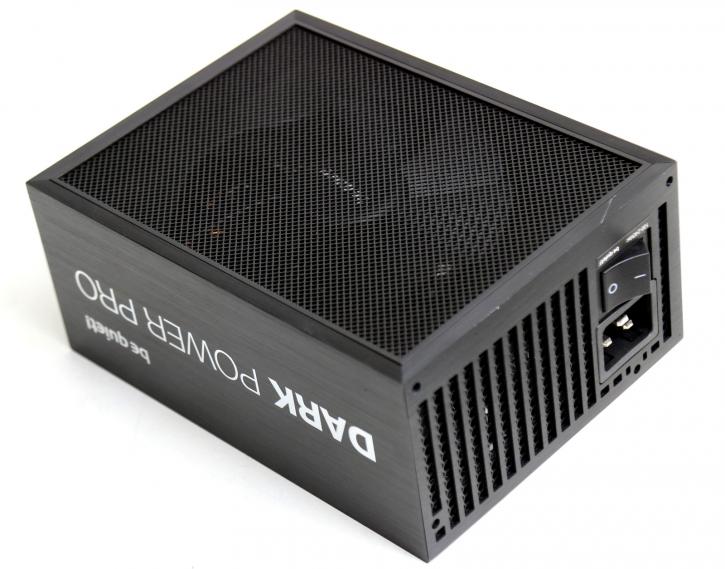Introduction
be quiet! Dark Power Pro 12 review (1500W)
Element 22 - Titanium
A Phoenix arrises as we the review power supply from beastly soils, the be quiet! Dark Power Pro 12. Initially releases in as 1200W and 1500W model, we'll check out the latter one. The series has been upgraded being all-digital, it has a few new tweaks, features and be quiet! was able to push the PSU towards 80 Plus Titanium certification. And yet, it remains silent I tell you. Meet the Seris 12 Pro in its 1500 Watt reviewing, a supermodular six 12V rails, energy-efficient product that remains silent. Next to a bump in efficiency, the new Dark Power Pro 12 power supply and an all-digital design it allows you to switch (with an overclock locking key) in-between a single and multi-rail design. Now I say give me a single rail any time of the day, but if you want a choice and prefer multi-rails, go for it we say. The 1500 Watt PSU as tested today (yeah, we know it's a little extreme) has an 80 Plus Titanium certification, meaning at 50% load, this puppy is 96% efficient and even 94% at 20% of its capacity (base on 230V). From the entire scope of certifications, Bronze, Silver but really Gold, Platinum, and at the end of the energy efficiency spectrum, Titanium is what you want. But yes, that upper stack in hardware is more expensive, though. Efficiency does matter; many years ago PSUs were rated as low as 70% efficient, meaning that 30% of the used power simply vanishes somewhere in that electric circuitry, while you are paying for it on that electricity bill. If your components consume 500W directly from the PSU, then with that 70% efficient product, you'd use and draw 650W from your wall power socket, the difference is the loss. With a Platinum or Titanium PSU, you'd be using 520~540W depending on the PSU model). The math is simple.
Digital?
Power supplies over the years have advanced into massively better efficiency, far better aesthetics, they've become more silent but also the quality of components (directly related to the lifespan of a power supply) has moved upwards significantly (if you stick to the more reputable brands of course). Within that mindset of aiming for the best, digital power supplies also became a thing. But why is that important, you might wonder? Various power supplies on the market are sold as digital. This can mean several things: analog PSUs that feature a digital display or a USB/Bluetooth-interface to read out electrical data or to adjust fan-curves; others are semi-digital models which only feature a digitally controlled PFC. PFC is the acronym for power factor correction or also power factor controller. It reduces the volume of reactive power produced by computers. Reactive power is the power stored and released by the capacitors and inductors of a device. In the case of be quiet!’s Dark Power Pro 12, digital means a fully digital control of PFC, LLC, SR/12V regulation, and protection circuits for even better power regulation and lower ripple noise. New microprocessors inside Dark Power Pro 12 make sure the fan curve is always adjusted perfectly, without requiring user input. That's as digital as it gets.
The Be Quiet! Dark Power Pro 12 series will become available in two models initially, 1200 and 1500 Watts. We do expect to see lower wattage units at one point, but these could have a more moderate 80 plus rating. We do have to mention that we see little reason for kilowatt+ power supplies these days, that is, unless you are a hefty overclocker or need something really efficient for your cryptocurrency mining. An average high-end PC these days (and yes Multi GPU isn't a thing anymore these days also) will be fine with say a 650 Watt PSU. A modern Ryzen 9 3800 XT PC will full load on a GeForce RTX 2080 Ti consumes maybe 400 Watts. We always say, calculate and double up your wattage, as at half the PSU load, your power supply will be the most efficient. In that example, that would mean an 800 Watts PSU. Let's have a peek at the product and then let's head onwards into the review.


